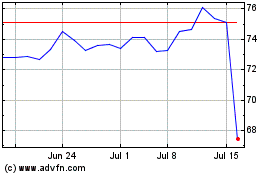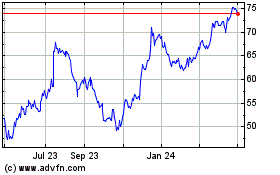401(k) participants aged 39-54 are saving a bit
more for the future than other generations, but they’re bogged down
by competing financial obligations in the present.
According to research from Schwab Retirement Plan Services, many
401(k) participants in Generation X are struggling with credit card
and other kinds of debt as they try to save for a comfortable
retirement. While a small majority of this group, aged 39 to 54,
say they are more focused on saving for retirement (58%), a full
42% say they are more focused on paying off debt right now.
The nationwide survey of 1,000 401(k) plan participants,
including 368 Gen Xers, 315 Millennials and 317 Baby Boomers, shows
that 70% of Gen Xers feel on top of their 401(k) investments but
they still face obstacles and experience financial stress while
trying to meet their long-term goals.
When asked about what is preventing them from saving more for
retirement, Gen Xers named:
- Unexpected expenses like home repairs (38%),
- Credit card debt (31%), and
- Needing money for monthly bills (29%) as their top
barriers.
- Moreover, 22% are paying for children’s education/tuition, and
11% are still paying off their own student loans.
Saving for retirement is Gen Xers’ top source of money-related
stress (40%), followed by credit card debt (27%) and keeping up
with monthly expenses (23%).
“Gen Xers are at a time in their lives when they have financial
pressures on all sides. While many are caring for children and
financing those children’s education, many are also providing care
and financial assistance to older relatives. Given all of these
competing priorities, it’s not too surprising that they’re relying
on credit to cover expenses,” said Catherine Golladay, president,
Schwab Retirement Plan Services. “Most in this group are in
critical earning years and at an age when it makes sense to really
focus on retirement preparations. With additional guidance and a
solid financial plan, Gen Xers could feel more confident and better
manage the many responsibilities they face.”
Gen X and their 401(k)s: Help Wanted
The majority of Gen Xers are relying on their 401(k) plans to
fund their golden years. Most (58%) say their 401(k) is their
largest or only source of retirement savings, compared to 68% of
Millennials and 48% of Boomers.
On average, Gen Xers think they will need $1.81 million for a
comfortable retirement, more than either of the other groups
(Millennials say $1.78 million and Boomers, $1.51 million). Yet
they may not be saving enough to meet that goal.
While Gen Xers saved slightly more in their 401(k)s last year
than the other two surveyed generations – $9,499 on average, with
Boomers right behind at $9,433 and Millennials at $7,257 – this
only equates to about half of the 2018 IRS contribution limit of
$18,500 for those under age 50.
In addition, many Gen Xers may not be thinking about their
401(k)s as a long-term savings vehicle. Almost a third (31%) have
taken a loan from their 401(k), and more than half of those
borrowers (61%) have done so more than once – higher than either of
the other generations in both cases.
The survey shows that this group could benefit from help and
education to make more of their 401(k) plans:
- 41% of Gen Xers say they don’t know which investments to choose
for their 401(k) to have enough for retirement.
- Just one in three (28%) say they are “very confident” in making
401(k) investment decisions on their own.
Gen Xers say they want help with fundamentals like:
- Calculating how much money they need to save for retirement
(41%),
- Determining at what age they can afford to retire (38%),
and
- Deciding where to invest their 401(k) (37%).
“A sizeable majority of Gen Xers, 69%, expressed a desire for
personalized help with their 401(k). Fortunately, most plans today
offer some kind of managed account or advice service,” added
Golladay. “We encourage people at any stage of their career to take
full advantage of the resources available to them. Professional
advice can boost your investing confidence as you formulate a
tailored plan you can stick to, all with the goal of ultimately
helping you achieve better outcomes.”
Beyond 401(k) advice, many workplace plans offer broader
financial wellness resources to help employees address a range of
financial challenges, including debt management, college planning
and more. Schwab has also developed the Savings Fundamentals to
help people manage and prioritize their competing financial
obligations using a step-by-step approach.
About the Survey
This online survey of U.S. 401(k) participants was conducted by
Logica Research for Schwab Retirement Plan Services, Inc. Logica
Research is neither affiliated with, nor employed by, Schwab
Retirement Plan Services, Inc. The survey is based on 1,000
interviews and has a 3% margin of error at the 95% confidence
level. Survey respondents worked for companies with at least 25
employees, were current contributors to their 401(k) plans and were
25-70 years old. Survey respondents were not asked to indicate
whether they had 401(k) accounts with Schwab Retirement Plan
Services, Inc. All data is self-reported by study participants and
is not verified or validated. Respondents participated in the study
between March 19 and March 29, 2019. Additional survey information
can be found here.
About Charles Schwab
At Charles Schwab we believe in the power of investing to help
individuals create a better tomorrow. We have a history of
challenging the status quo in our industry, innovating in ways that
benefit investors and the advisors and employers who serve them,
and championing our clients’ goals with passion and integrity.
More information is available at www.aboutschwab.com. Follow us
on Twitter, Facebook, YouTube and LinkedIn.
Financial tools and resources are available at
www.schwabmoneywise.com.
Disclosures
Through its operating subsidiaries, The Charles Schwab
Corporation (NYSE: SCHW) provides a full range of securities
brokerage, banking, money management and financial advisory
services to individual investors and independent investment
advisors. Its broker-dealer subsidiary, Charles Schwab & Co.,
Inc. (member SIPC, www.sipc.org), and affiliates offer a complete
range of investment services and products including an extensive
selection of mutual funds; financial planning and investment
advice; retirement plan and equity compensation plan services;
compliance and trade monitoring solutions; referrals to independent
fee-based investment advisors; and custodial, operational and
trading support for independent, fee-based investment advisors
through Schwab Advisor Services. Its banking subsidiary, Charles
Schwab Bank (member FDIC and an Equal Housing Lender), provides
banking and lending services and products. More information is
available at www.schwab.com and www.aboutschwab.com.
The Charles Schwab Corporation provides services to retirement
and other benefit plans and participants through its separate but
affiliated companies and subsidiaries: Charles Schwab Bank; Charles
Schwab Trust Bank; Charles Schwab & Co., Inc.; and Schwab
Retirement Plan Services, Inc. Trust, custody, and deposit products
and services are available through Charles Schwab Bank and Charles
Schwab Trust Bank, Members of FDIC. Schwab Retirement Plan
Services, Inc. is not a fiduciary to retirement plans or
participants and only provides recordkeeping and related
services.
Schwab MoneyWise® is provided by Charles Schwab & Co.,
Inc.
©2019 Schwab Retirement Plan Services, Inc. All rights reserved.
(0919-9331)
View source
version on businesswire.com: https://www.businesswire.com/news/home/20190910005170/en/
Mike Peterson Charles Schwab 330-908-4334
mike.peterson@schwab.com
Jade Faugno Intermarket Communications 212-754-5425
jfaugno@intermarket.com
Charles Schwab (NYSE:SCHW)
Historical Stock Chart
From Mar 2024 to Apr 2024

Charles Schwab (NYSE:SCHW)
Historical Stock Chart
From Apr 2023 to Apr 2024
